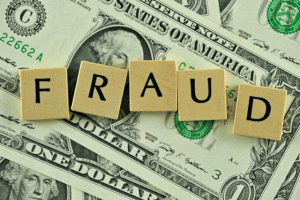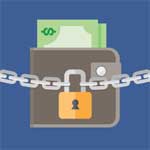
One unfortunate retirement-age woman found herself being dunned for $8,500 after someone named “David” used her credit information illegally. She received more than 60 calls over a three-week period, often late at night, as she was hassled to pay the debt. The harassment didn’t end until she hired a lawyer.
The Consumer Financial Protection Bureau (CFPB) reports that 8,700 similar complaints were filed with the agency over a 15-month period, half from elderly persons who reported unrelenting attempts to collect money they didn’t owe.
In the period from July 2013 to December 2014, the agency received overall 110,000 complaints regarding debt collection. The Federal Trade Commission lists such complaints as its most consistent industry problem.
The debt collectors report they are trying to collect some $756 billion in debt. It isn’t possible to estimate how much of that staggering total involves “false debt” claims. But based on complaints by those 62 and older, there are several identifiable tactics that collectors use to weasel money not owed from the elderly, according to an AARP magazine article. They include:
Common debt collector scams:
Threats to garnish Social Security or veterans’ benefits if the person doesn’t pay the claimed “debt.” CFPB experts say this is not possible. Garnishees from these government sources are only possible for delinquent state or federal debt such as unpaid taxes, student loans or government-backed mortgages. Alimony or child support payments also can be withheld from Social Security payments, but Supplemental Security Income benefits cannot be garnished due to any debt.
Pressure to pay medical bills that supposedly were generated by a late spouse. Widows are the frequent victims of this particular scam, which are purposely imposed on them when they are emotionally frail, just learning to cope with their loss. Or the scammers may make repeated attempts to collect debts that they falsely allege were owed by deceased family members.
Frequently repeated calls, offensive language and threats of public shame are among the scammers’ arsenal to intimidate so-called debtors into paying. The experts stress that persons being subjected to these annoying tactics should not respond under pressure simply to be rid of the annoyance. Verify the debt before even considering payment. Be aware that collectors cannot collect on debt that has expired under statute of limitations provisions. The period ranges from two to 10 years, depending on state laws.
There are instances of mistaken identity in which legitimate collectors simply have their information wrong. In some instances, they are able to collect from the wrong party because those being dunned are reluctant to provide identifying information over the phone for fear of identity theft. But if you think you may have wrongfully paid a debt under such circumstances, contact the CFPB and your state’s attorney general to report your concerns.
To protect yourself against fake collectors, follow these steps:
Ask for specific information about the alleged debt. If the collector fails to respond, you can assume it is a scam. Visit go.usa.gov/Fsge for information about bogus collectors.
Keep close tabs on your credit transactions. You are entitled to three annual free reports from the three major credit reporting firms. Visit AnnualCreditReport.com for information on obtaining these reports. Look for unrecognized debt in your name and report discrepancies immediately.
Visit go.usa.gov/FsY3 to get information about alleged debt. Dispute claims that are not correct. You can obtain sample letters from that address that you can use as patterns to report your disputes. Send the information by certified mail and with a “return receipt” to the collector and to the creditor. Copy to the CFPB, the Federal Trade Commission and your state attorney general.
If you are being dunned for alleged credit card debt, insist on written proof, such as statements detailing unpaid charges. If the collector claims medical debt, ask for documents detailing services, dates and names of providers. Cross-check with Medicare and private insurers.


